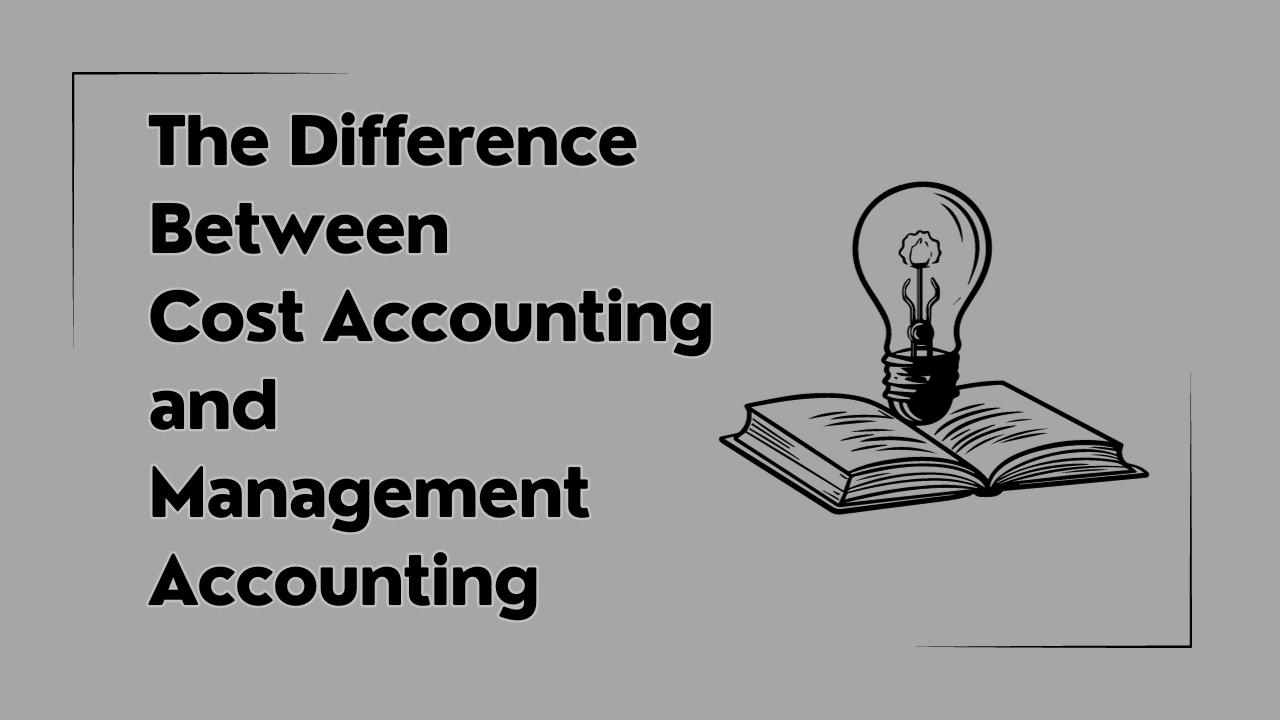
In the realm of accounting, two distinct but interrelated disciplines stand out: Cost Accounting and Management Accounting. While they share common objectives in aiding organizations in making informed financial decisions, they diverge in their scope, purpose, and audience. Cost Accounting primarily focuses on tracking and allocating production-related costs, providing insights into cost control and product pricing. In contrast, Management Accounting has a broader mandate, encompassing financial and non-financial data to assist internal decision-making across an organization. This blog post delves into the key disparities between these two accounting practices, shedding light on how they serve as vital tools for effective financial management in various business contexts.
What is Cost Accounting?
Cost accounting is a branch of accounting that systematically records, analyzes, and manages an organization's production costs. It aims to determine the cost of producing goods or services by tracking expenses like raw materials, labor, and overhead. Cost accountants use various methods, such as job costing or process costing, to allocate costs to specific products or activities. This discipline helps businesses assess cost-efficiency, control expenses, and make informed decisions about pricing, budgeting, and resource allocation. This can be studied with the help of some of the best CA Entrance Exam Books. By providing detailed insights into cost structures, cost accounting aids in optimizing operations and enhancing profitability while ensuring accurate financial reporting.
What is Management Accounting?
Management accounting is a facet of accounting that focuses on providing valuable financial and non-financial information to aid organizations in making informed decisions and achieving their strategic goals. It involves the collection, analysis, and interpretation of data related to an organization's operations, performance, and financial health. Management accountants generate reports and forecasts that help managers plan, control, and optimize resources effectively. To become a successful Management Accountant students must go through the best CA intermediate study material. This discipline encompasses budgeting, variance analysis, performance measurement, and scenario planning, offering insights into profitability, cost-efficiency, and overall business performance. Unlike financial accounting, which primarily serves external stakeholders, management accounting caters to internal management teams, guiding them in their day-to-day and long-term decision-making processes.
|
Difference Between Cost Accounting and Management Accounting |
|||
|
S. No |
Key differences |
Cost Accounting |
Management Accounting |
|
1. |
Purpose |
The primary purpose of cost accounting is to determine and record the cost of producing goods or services. It focuses on the allocation of costs to various products, departments, or processes. Cost accounting helps in cost control, cost analysis, and pricing decisions. |
Management accounting, on the other hand, is broader in scope and is focused on providing information and analysis to aid in internal decision-making. It encompasses various financial and non-financial data to assist managers in planning, controlling, and making informed business decisions. |
|
2. |
Audience |
The audience for cost accounting information is often internal, including managers and employees responsible for cost control and production efficiency. It helps them understand and manage costs within the organization. |
Management accounting serves a broader audience, including top-level management and various departments within the organization. It provides insights and data for strategic planning, performance evaluation, and resource allocation. |
|
3. |
Time Horizon |
Cost accounting typically focuses on historical data and the costs incurred in the past. It is essential for evaluating past performance and making short-term decisions. |
Management accounting looks both backward and forward. It includes historical data but also emphasizes forecasts and projections, helping managers plan for the future. |
|
4. |
Scope |
Cost accounting mainly deals with costs related to production or specific activities, such as direct materials, direct labor, and overhead costs. |
Management accounting covers a broader range of information, including financial and non-financial data. It considers both financial performance metrics (e.g., profit margins) and non-financial performance indicators (e.g., customer satisfaction). |
|
5. |
Regulatory Requirements |
Cost accounting is often subject to fewer regulatory requirements compared to financial accounting. However, specific industries or government contracts may have specific cost accounting standards that must be followed. |
Management accounting is not subject to external regulatory standards, as its primary purpose is to assist internal decision-making. |
|
6. |
Reporting Frequency |
Cost accounting reports are typically generated regularly, such as monthly or quarterly, to monitor ongoing costs. |
Management accounting reports can be generated as needed to support various managerial decisions. They may not follow a fixed reporting schedule. |
Conclusion
While both Cost Accounting and Management Accounting are essential facets of financial management, they serve distinct purposes. Cost Accounting is a focused tool for tracking production costs, aiding in cost control and pricing decisions. In contrast, Management Accounting takes a broader view, providing a comprehensive range of financial and non-financial data to guide internal decision-making at all organizational levels. Scanner CA Intermediate Books will definitely guide the students to study these topics well. Understanding these differences helps organizations harness these accounting disciplines effectively to achieve their financial objectives and strategic goals.
© 2024 Scanner Adda All rights reserved | Design by Shuchita Technologies